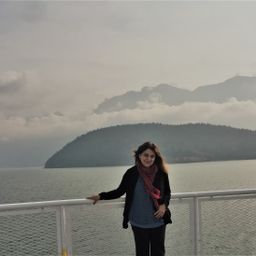Gada Mahrouse Title : Touristifying the refugee crisis? Exploring refugee-run tourism enterprises
Mon statut pour la session
by
Gada Mahrouse
As the world faces an ongoing global refugee “crisis,” tourism is growing exponentially. Given the scale of both, questions of mobility justice are of the utmost urgency. Yet, with a few notable exceptions, academic research has yet to examine the ways in which tourists and refugees interact. Informed by Zygmunt Bauman’s (1998) work on the figures of the “tourist and the figure and what he calls the “vagrant” (which in today’s world is the migrant) as “two sides of the same coin”, this paper considers what happens when the figures of “the tourist” and the figure of the refugee become indistinct.
Case in point: Since 2015, many initiatives have been put forth to challenge xenophobia towards refugees and to facilitate their integration. A small but growing subset of these initiatives takes its lead from the tourism industry to draw attention to the plight of refugees in Europe. For example, a “Refugee voices” walking tour of Berlin is led by Syrian refugees in an effort to draw parallels between the history of Berlin and what is happening in Syria [https://refugeevoicestours.org].
Responding directly to the justice and tourism theme this paper explores the paradoxes of “touristifying’ and consuming the predicament of refugees, even if for awareness-raising purposes. Specifically, I use case study and discourse analysis methods of these initiatives to ask: what are the possibilities and limitations of increasing the acceptance of refugees through these initiatives? At the heart of this paper are questions of power, capital, space, and how subjects are constituted through encounters with the Other. The study will examine relations of power as both discourse and practice (Foucault 1980) and capital will be conceived as both symbolic and material (Bourdieu 1977). In so doing, I seek to offer a way to deeply attend to the complexities of power dynamics in ways that recognize the potential, contradictions, and underpinnings of certain touristic practices. I also offer a way of examining how power relations are both disrupted and reproduced through tourism.
This paper fosters interdisciplinary research and approaches the topic from an intersectional perspective. While the focus is on Europe, this analysis has implications for additional geopolitical sites (i.e. Istanbul, Turkey; Lampedusa, Italy; Lesvos, Greece; and the Mexico/US border).
REFERENCES
Bauman, Z. (1998). Globalization: Human Consequences. New York: Columbia University Press.
Bourdieu, P. 1977. Outline of a Theory of Practice. Cambridge and New York: Cambridge Univ Press.
Foucault, M. (1980). Two lectures. In Power/Knowledge: Selected Interviews and Other Writings, 1972-1977. New York: Pantheon Books.
